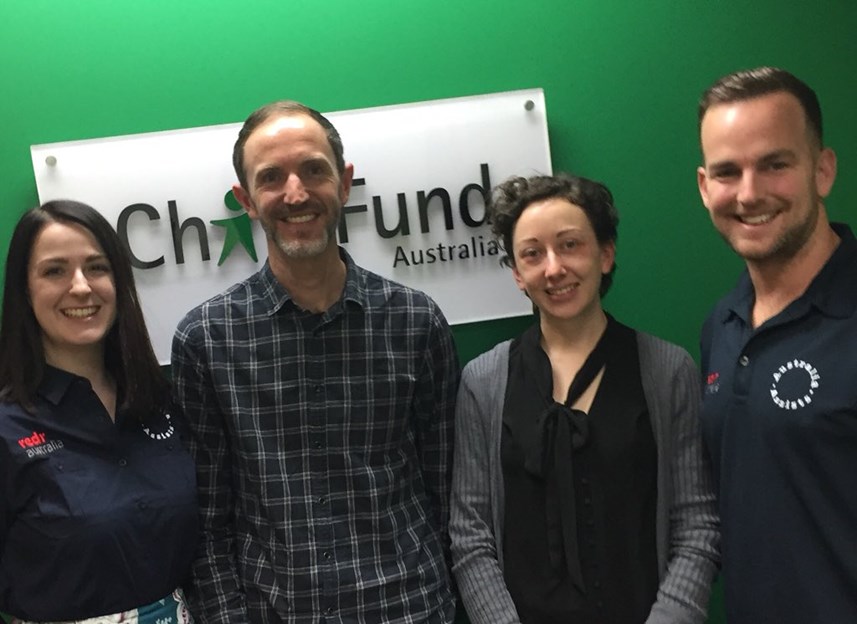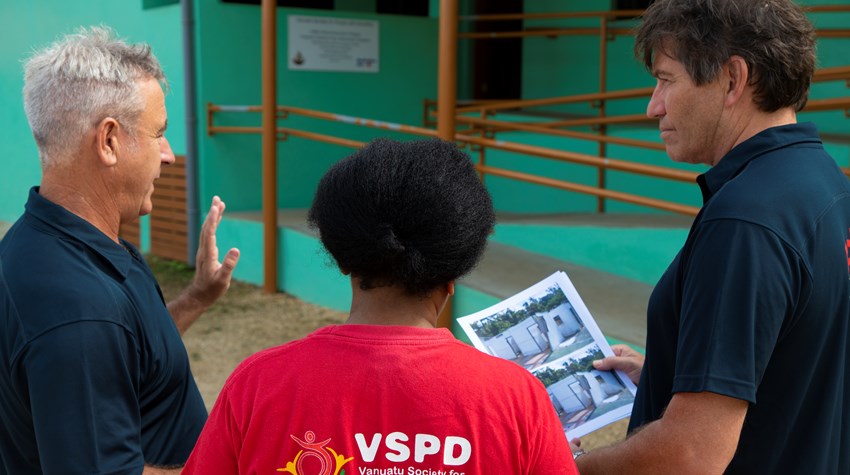Hosted at ChildFund Australia in Sydney by ActionAid and our partners at CBM Australia, the workshop ran from August 28–29, covering strategies for gender and disability inclusion during disaster risk reduction and response.
The Gender Inclusion for Humanitarian Action workshop was presented by Carol Angir, Program Manager for Women’s Rights and Emergencies for ActionAid, who presented an Exploitative – Accommodating – Transformative spectrum of gender-responsive programming.
ActionAid proposes that humanitarian action takes advantage of existing gender norms and power imbalances (exploit), acknowledges the role of gender norms and inequalities, developing actions that compensate for these (accommodate), and encourages awareness of gender roles and norms, and promotes women’s leadership (transform).
The disability inclusion workshop was run by Liz Morgan and Asahel Bush, Disability and Inclusion Advisors at CBM, who described inclusive humanitarian action as both a process and an outcome, where people with disabilities can meaningfully participate and benefit equally.
According to CBM’s Monitoring and Evaluation report, when Tropical Cyclone Pam hit Vanuatu in March 2015, 60 per cent of people with disabilities reported a lack of information on what to do in an emergency before the cyclone. Following the emergency, 15 per cent said they had been unable to access health services, and 29 per cent said they had not been able to access food distribution.
Frameworks were presented to assure the active participation of people with disabilities during disaster response, including ensuring humanitarians engage Disabled People’s Organisations (DPOs), identify and reduce barriers in their operating context, and adapt their project activities and processes.



